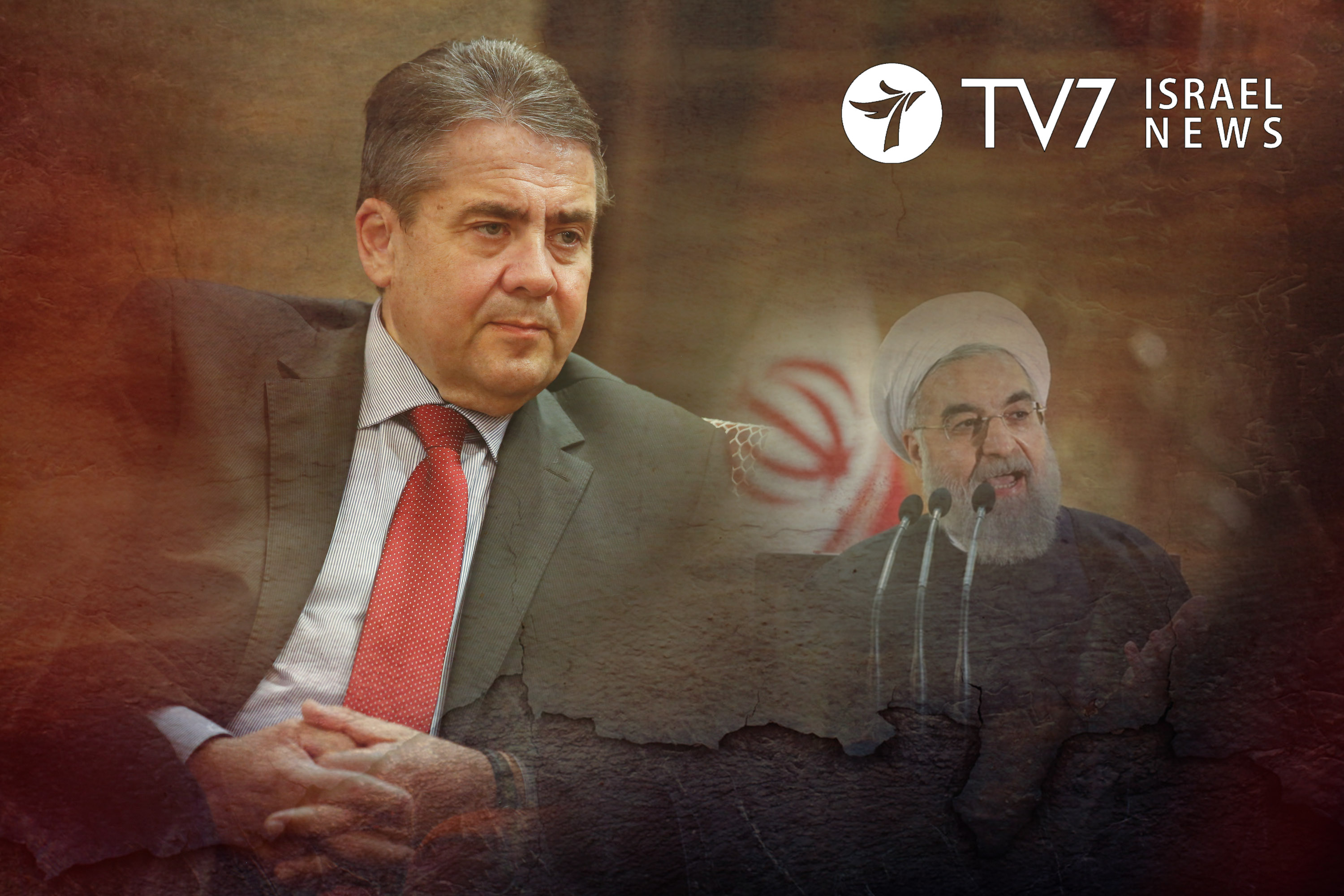German Foreign Minister Sigmar Gabriel urged Iran, during a joint-press conference in Berlin with his French counterpart Jean-Yves Le Drian, to stop supporting armed groups in Syria and Iraq that are contributing to the destabilization of the Middle East, if Tehran truly seeks good relations with the West.
“It’s also part of the truth that Iran plays a difficult role in many conflicts in the region, especially in Iraq and Syria. The message must be that we are ready to work with the new government but we expect Iran to behave responsibly in the region, to support not terror but the politics of peace and contributes to stability. Only when that happens then confidence in the place as an investment location will return.” / “We support President Rouhani and offer our cooperation to him, but we expect Iran to pursue a policy of de-escalation, that brings stability and peace instead of wars and civil wars, in the Persian Gulf and especially in Lebanon with the Hezbollah and many other difficult institutions, which are being supported by Iran,” said Gabriel.
The comments by the German top diplomat came as President Rouhani, long known as a cautious and mild-mannered establishment insider, reinvented himself as a bold champion of reform during his Presidential election campaign, which culminated last weekend in victory with more than 57 percent of the votes. His main challenger, a hardline judge Ebrahim Raisi, lingered far behind, receiving only 38 percent.
“Mr. Rouhani — with 23,549,616 people or 57 percent of the total ballots — was elected as president of Iranian people,” said Abdolreza Rahmani Fazli, Iranian Interior Minister.
French Foreign Minister Le Drian said that the re-election of President Rouhani will motivate Iran to play an important role in bringing stability to the Middle East, and will also safeguard the nuclear agreement the Islamic Republic reached with world powers, in which Iran agreed to limit its nuclear program in exchange for international sanctions relief.
“We are convinced that with the re-election of President Rouhani, Iran will play an important role in bringing stability to the region. Beyond that, this re-election strengthens the hope that the government of President Rouhani will continue to rigorously implement the historic agreement of 14 July 2015, which diplomatically resolved a major nuclear challenge. And where a new stage between Iran and the international community was started. We will pay careful attention to this point and as to President Trump, we will follow with great interest what messages he sends out during this trip,” said Le Drian.
Iranian President Hassan Rouhani welcomed the voices of reconciliation from the West, declaring his reelection was a clear message from Iran’s nation, which chose the path of interaction with the world, away from violence and extremism. That said, President Rouhani warned that the Islamic Republic would not be ready to be humiliated or threatened… pointing to the strong rhetoric levelled against his regime by US President Donald Trump, together with some 54 Sunni Muslim Arab nations, as well as a massive arms-deal the United States made with Tehran’s arch rival Saudi Arabia, in which Riyadh will purchase advanced weaponry from Washington for some 100 billion dollars.
“Our nation’s message in the election was clear: Iran’s nation chose the path of interaction with the world, away from violence and extremism. Our nation wants to live in this world in friendship. But we are not ready to be humiliated and threatened.” / “Saudi Arabia may think it is necessary to buy weapons. We do not need to buy weapons, we produce weapons. We have the capability to produce and we will produce any kind of weapon we need,” said said Rouhani.
US President Donald Trump, who concluded his visit to the Middle East yesterday after visiting both Saudi Arabia and Israel, vowed to back Washington’s regional allies in the face of Iran’s aggressions, while pointing to the fact that the Iranian threat was pushing Arab countries together in a positive way and that he could see a “much deeper path to friendship with Israel” in between different nations of the region.
